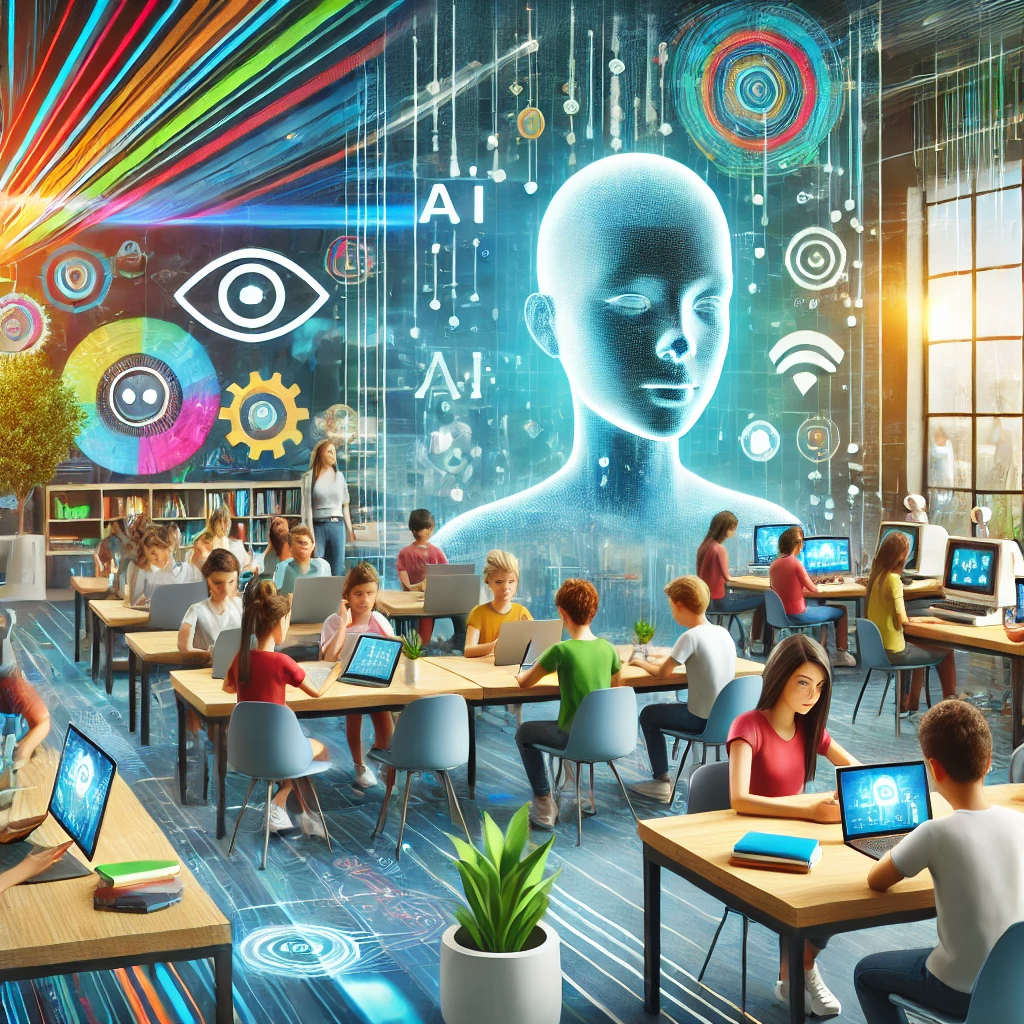A new horizon: ChatGPT’s role in shaping contemporary education
ChatGPT has been shown to significantly enhance the overall learning experience for students. Its adaptive feedback allows students to engage in self-directed learning, enabling them to seek help on their own terms. This fosters a sense of independence and builds confidence as they progress through assignments and projects. Additionally, the tool encourages students to engage more deeply with their studies by offering explanations and clarifications tailored to their queries.

In recent years, artificial intelligence (AI) has made remarkable strides, permeating virtually every aspect of human life—from healthcare and finance to entertainment and education. As education undergoes rapid transformation in the digital age, tools like ChatGPT, a conversational AI developed by OpenAI, have emerged as potential game-changers. These tools promise to not only support traditional teaching methods but also redefine how knowledge is accessed and disseminated.
The study "A Global Outlook on AI-Predicted Impacts of ChatGPT on Contemporary Education," authored by Sezer Kanbul, Idris Adamu, and Yakubu Bala Mohammed, dives deep into the impacts of ChatGPT on education. Published in SAGE Open, 14(3), this research investigates how ChatGPT affects sustainable education through machine learning (ML) techniques. By analyzing over 2,900 datasets sourced from social media, the study provides a comprehensive look at how AI is reshaping teaching and learning processes.
In this study, the authors explore the role of ChatGPT in contemporary education through five machine learning models: Gradient-Boosted Decision Tree (GBDT), Artificial Neural Network (ANN), Support Vector Machine (SVM), Random Forest (RF), and eXtreme Gradient Boosting (XGBoost). The models aimed to predict the educational benefits and potential challenges associated with ChatGPT adoption. Among the models, XGBoost and RF achieved the highest predictive accuracy, with R² values exceeding 0.98, affirming their suitability for such complex analyses.
The study highlights ChatGPT's ability to enhance self-confidence, promote independent learning, and foster student interest. Additionally, it underscores the need for stakeholders to address potential drawbacks like reduced critical thinking and ethical concerns.
Benefits of ChatGPT in education
ChatGPT has been shown to significantly enhance the overall learning experience for students. Its adaptive feedback allows students to engage in self-directed learning, enabling them to seek help on their own terms. This fosters a sense of independence and builds confidence as they progress through assignments and projects. Additionally, the tool encourages students to engage more deeply with their studies by offering explanations and clarifications tailored to their queries.
For educators, ChatGPT has proven to be a time-saving resource. By automating the creation of assessments, generating innovative teaching materials, and assisting in the development of course outlines, it allows teachers to focus on other aspects of pedagogy. This increased efficiency not only reduces workload but also improves the quality of educational materials through adherence to standardized frameworks.
The integration of ChatGPT also adds an element of enjoyment to the learning process. Students find the interaction with the AI tool engaging and intuitive, which enhances their motivation to learn. Its global accessibility ensures that learners from diverse backgrounds, including those in underserved regions, can benefit from personalized support, bridging the gap in education equity.
Challenges of ChatGPT utilization
Despite its advantages, ChatGPT poses several challenges, particularly concerning ethics and security. Data privacy is a significant concern, as the AI interacts with potentially sensitive information. Academic integrity is another pressing issue, with educators expressing worries about students misusing the tool for plagiarism or circumventing the learning process by relying too heavily on AI-generated content.
One major drawback is ChatGPT’s potential impact on critical thinking skills. Over-reliance on AI may hinder students’ ability to solve problems independently and engage in analytical reasoning. While ChatGPT excels at providing information, it often lacks the contextual depth and understanding required for nuanced educational scenarios. Its reliance on training data also means it can perpetuate biases or inaccuracies, further complicating its application in education.
Practical implications for educational stakeholders
The findings of this study highlight the importance of strategically integrating ChatGPT into educational systems. Institutions can use ChatGPT to complement traditional teaching methods, particularly in personalizing learning experiences for students. However, the study also underscores the necessity of developing policies and guidelines to mitigate ethical and security risks. For instance, measures such as monitoring AI usage, encouraging critical thinking, and ensuring data protection must be implemented to address concerns like plagiarism and privacy violations.
Training programs for educators will also play a vital role in maximizing the benefits of ChatGPT. By equipping teachers with the knowledge to effectively use the tool, institutions can enhance its integration while maintaining a balanced approach to learning and teaching.
To sum up, the study offers a comprehensive analysis of ChatGPT’s role in modern education, emphasizing its potential to revolutionize learning and teaching processes. While the findings underscore significant benefits, they also caution against unregulated adoption, advocating for balanced integration into educational systems.
Future research should explore ChatGPT’s impacts across diverse educational settings and expand datasets to enhance predictive accuracy further. As AI continues to evolve, tools like ChatGPT could become pivotal in shaping an inclusive and innovative global education landscape.
- FIRST PUBLISHED IN:
- Devdiscourse










